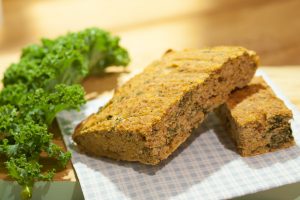Whether it’s used as decoration for the salad bar or the brilliant magenta kale that adds color to the landscape, doesn’t detract from the nutritional value of this superfood. Kale has been underrated for years and often underused at the dinner table. It’s loaded with nutrients and low in calories, making it a perfect addition for a healthy diet and one that could aid you in weight loss. Even the ornamental kale that adds to the appearance of your landscape has nutritional v alue, but since it’s bred for appearance, rather than taste, needs to be boiled first before use or it’s too bitter.
alue, but since it’s bred for appearance, rather than taste, needs to be boiled first before use or it’s too bitter.
Kale contains loads of nutrients.
No matter how you cook it, the queen of greens can provide a host of nutrition. It’s high in vitamin K, vitamin A, vitamin C, copper and manganese. It also contains vitamim B1, B2, B3, B6 and vitamin E. If you’re looking for a source of folate, calcium, copper, potassium, iron, magnesium, phosphorous and Omega3 fatty acids, kale should be in your salad, soup or as a side dish. It’s one of the most nutrient dense plants available.
Give your immune system a boost and include kale.
Kale has some potent antioxidants from the vitamin A in the form of beta carotene and vitamin C to the flavonoids and polyphenols, you’ll be protecting your cells and giving your immune system a boost. Not only do they give your immune system a boost, they also protect cells from oxidative damage, which can cause serious diseases and even aging. Flavonoids in kale, quercetin and kaempferol, have anti-inflammatory, anti-depressant, anti-viral and anti-cancer benefits. They help lower blood pressure
and protect the heart.
Kale can help with weight loss.
Kale is filling, while being low in calories. That’s a good start for weight loss. It also has a protein and fiber that can prove beneficial for weight loss as well. The fiber is one reason kale is filling. You can add it to a salad to boost the nutrition, throw it in a smoothie or cook it as a side dish or extra ingredient for soup. It adds to the flavor no matter how you cook it, while helping you shed those extra pounds.
- Kale may help you stay more alert by slowing mental decline as you age. It reduces the risk of dementia and Alzheimer’s. Cook some up and sprinkle with turmeric for a perfect blend.
- If you’re on blood thinners or suffer from hypothyroidism, check with your health care professional before adding kale to your diet. It contains vitamin K that helps blood clot and high amounts of goitrogen.
- Unlike spinach, kale is low in oxalate—oxalic acid. Oxalate can reduce the amount of nutrients absorbed by the body. For instance, even though spinach is high in calcium, the oxalate prevents the body from absorbing it, so it’s not bioavailable. Foods high in oxalate can also cause kidney stones.
- Kale contains cholesterol lowering bile acid sequestrants. This can lower cholesterol.

